The Poetry of Sa'di Yûsuf: Between Homeland and Exile (Sussex, 2006) In the first book-length study in English on Iraq's foremost living poet and one of the preeminent modernists of Arabic poetry, the author provides a comprehensive look at Yusuf's literary accomplishments and a coherent framework for understanding his body of work.

 Dr. Yair Horesh Dr. Yair Horesh
| Revolutionary Justice: Special Courts and the Formation of Republican Egypt (Oxford, 2016)
A new reading of the critical power struggle between the July 1952 revolutionary regime in Egypt and its adversaries through a close study of specific trials in the country's special courts and their role in shaping each side's public image.
 Prof. Yoram Meital Prof. Yoram Meital
|
The Thirty-Year Genocide, Turkey's Destruction of its Christian Minorities 1894-1924 (Harvard, 2019)
Through a close analysis of events in the final decades of the Ottoman empire, the book argues that the three waves of violence against Christians in Anatolia were not spasmodic or distinct, but rather formed part of a larger and coherent plan of genocide, itself used as a model by Hitler for the Jews.
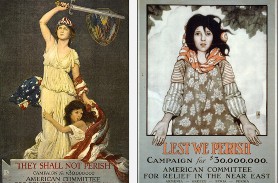
 Profs. Benny Morris and Dror Zeevi Profs. Benny Morris and Dror Zeevi
| Intoxicating Zion: A Social History of Hashish in Mandatory Palestine and Israel (Stanford, 2020) Weaving together drug trafficking, use, and regulation; race, gender, and class; and colonialism and nation-building, the book uses hashish—a marker of belonging and difference in the region—to explore the inter-connected realms of cross-border politics, economics, and culture, and to offer new insights into how the modern Middle East was made. Co-winner of the 2021 Best Book in Israel Studies Award.

 Prof. Haggai Ram Prof. Haggai Ram
|
| Iranophobia: The Logic of an Israeli Obsession (Stanford, 2009)
Concerned foremost with how Israelis perceive Iran, the book diverges from all-too-common geopolitical analyses to show that the conflict between the two countries is as much a product of shared cultural trajectories and entangled histories as it is of strategic concerns and political differences. 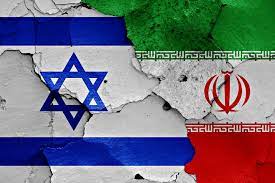
 Prof. Haggai Ram Prof. Haggai Ram
| Ottoman Rule of Law and the Modern Political Trial: The Yildiz Case (Syracuse, 2018)
A new reading of the famous yet under-studied criminal trial of several senior Ottoman statesmen, including the Midhat Pasha, offers a new framework for understanding Ottoman legalism and its concept of the rule of law.
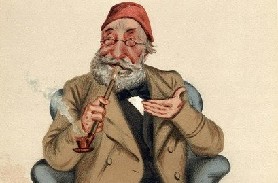
 Prof. Avi Rubin Prof. Avi Rubin
|
Ottoman Nizamiye Courts: Law and Modernity (Palgrave Macmillan, 2011) Employing a socio-legal approach, the book offers a fresh look at one of the most important milestones in the transition of the Ottoman Middle East into modernity during the late nineteenth century: the Nizamiye court system. 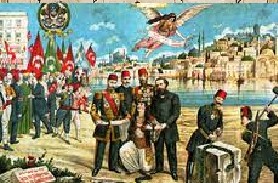
 Prof. Avi Rubin Prof. Avi Rubin
| The Egyptian Social Contract: A History of State-Middle Class Relations (Edinburgh University, forthcoming) An exploration of the intricacies of both formal and informal agreements between the state and its citizens, from the establishment of the semi-independent Egyptian nation in 1922 until the 2011 uprising.
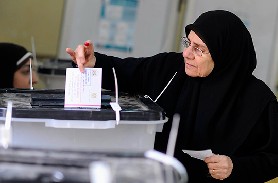
 Prof. Relli Shechter Prof. Relli Shechter
|
The Rise of the Egyptian Middle Class: Socio-Economic Mobility and Public Discontent from Nasser to Sadat (Cambridge, 2018)
An investigation of the discrepancy between Egypt's swift economic growth in the 1970s and 80s and its social and cultural crises of the same period.

 Prof. Relli Shechter Prof. Relli Shechter
| Sacred Place and Sacred Time in the Medieval Islamic Middle East: A Historical Perspective (EUP, 2020)
Using two detailed case studies—the shrines in honour of the head of al-Husayn (the martyred grandson of the Prophet) and the holy month of Rajab—the book explores the relationship between the sanctification of space and time in both individual and communal piety and religious literature. 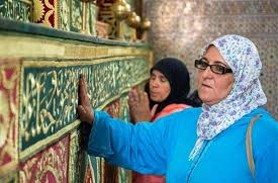
 Prof. Daniella Talmon Prof. Daniella Talmon
|
Islamic Piety in Medieval Syria: Mosques, Cemeteries and Sermons Under the Zangids and Ayyūbids, 1146-1260 (Brill, 2007)Focusing on the mosques, cemeteries, and shrines of Syrian Muslims in the period of the crusades and the anti-Frankish jihad, the book uses religious rites and experiences, liturgical calendars, spiritual leadership, and perceptions of impiety and dissent to paint a complex yet intimate picture of the texture of medieval Islamic piety. Winner of the Tel Aviv Book Award in Middle Eastern Studies.
 Prof. Daniella Talmon Prof. Daniella Talmon
|

|
